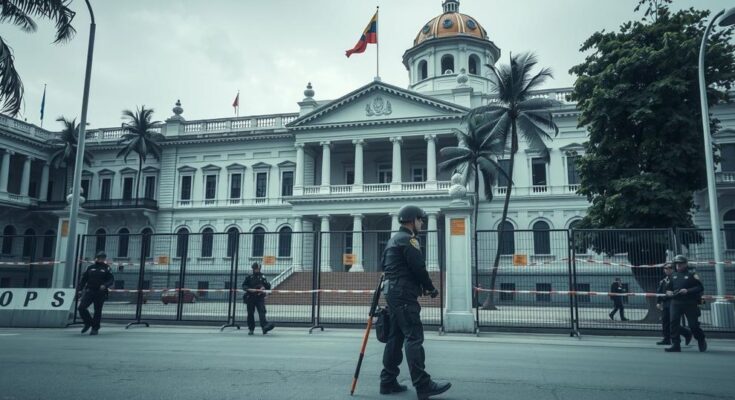Colombia’s Congress has increased security due to protests called by President Gustavo Petro against a blocked labor reform. Local authorities restrict civil servants’ participation, prompting pushback from unions. Labor Minister Sanguino stresses the protection of workers’ rights to protest, amid wider demands for health and pension reforms.
In anticipation of protests instigated by President Gustavo Petro regarding a labor reform that was voted against by a senate commission, Colombia’s Congress has heightened security measures. Petro has urged labor unions, agricultural organizations, and his political followers to mobilize during the crucial congressional vote on this significant reform proposal.
Senate President Efrain Cepeda, a vocal opponent of President Petro, announced that access to the capitol building would be limited to members of Congress, government officials, and accredited media personnel. Concurrently, Senator Nadia Blel expressed concern about the threats and slander faced by senators who oppose the labor reform, stating that it is distressing for their families to feel harassed and threatened.
In a show of authority, local governments in major Colombian cities have prohibited state employees from participating in the protests, a decision met with resistance from unions. For instance, Bogota Mayor Carlos Galan warned that teachers present at the demonstrations would face payment deductions, a stance that was contested by FECODE, the teachers’ union, emphasizing that teachers’ salaries are issued by the National Government.
Labor Minister Antonio Sanguino pledged to oversee employers’ adherence to workers’ rights to protest, stating that labor relations must not encroach upon this fundamental right. He cited that the Constitutional Court demands respect for workers’ personal dignity, beliefs, and freedoms of association, prohibiting any actions limiting these rights.
The protests, organized by leading labor unions and indigenous groups, also seek legislative backing for pending health and pension reforms, highlighting broader socioeconomic issues in Colombia.
In summary, heightened security measures in Colombia’s Congress reflect the tensions surrounding the labor reform protests called by President Gustavo Petro. Local authorities’ restrictions on state employee participation and the backlash from union representatives underscore the contentious dynamics at play. Labor Minister Antonio Sanguino’s commitment to safeguarding workers’ rights further emphasizes the importance of these protests in advocating for broader reforms beyond labor issues.
Original Source: colombiareports.com




